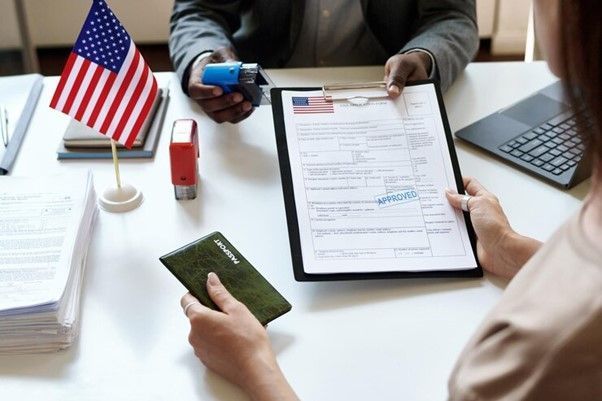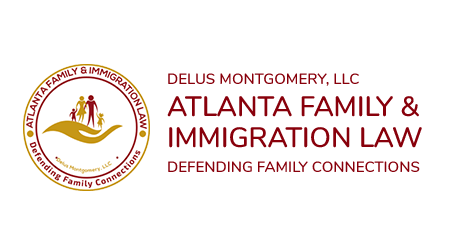Atlanta Family & Immigration Law Blog
Useful info and resources on cases and laws
News
Employment-based immigration rules are critical in shaping the US' body of workers panorama. Through many visa sorts and routes, this felony machine lets overseas people live and work in the country. Employers seeking talent and individuals looking to advance their careers in the United States must first understand this immigration field. The subtleties of employment-based immigration can be difficult; therefore, cooperating with an Atlanta immigration lawyer familiar with the latest laws and procedures is vital. The Role of Employers in the Immigration Process The employment-based immigration manner depends on many employers. Often, they may be responsible for sponsoring overseas individuals, which includes filing applications and demonstrating the need for specific skills. This sponsorship ensures adherence to immigration rules and permits groups to lease their desired expertise. An Atlanta immigration legal professional can help companies navigate the prison duties associated with sponsorship, thereby streamlining the technique and enhancing its effectiveness. Understanding their duties helps companies to avoid typical traps and support an effective recruiting plan. Significance of Employment-Based Immigration One cannot understate the importance of employment-based immigration legislation. It fosters innovation and diversity in the workplace by allowing competent people worldwide to contribute to the U.S. economy. This legislation enables businesses to fill important skill shortages and maintain competitiveness using qualified people's entrance. It also promotes the idea of a varied workforce, enhancing the country's cultural fabric. Working with an immigration law firm may significantly improve the likelihood of a successful application procedure. Categories of Work Visas Under employment-based immigration rules, there are several types of work visas available. Among the most widely widespread are H-1B visas for expert vocations, L-1 visas for intra-employer transfers, and O-1 visas for people with first-rate expertise. Every visa class has certain qualifying criteria, utility techniques, and regulations. The H-1B visa, for instance, has an annual restriction that affects its availability, so timely submitting of packages is important for candidates. Dealing with an Atlanta immigration lawyer can help navigate these intricacies and meet each need. Pathways to Permanent Residency Apart from work visas, employment-based immigration might result in permanent residence via the green card procedure. Among the several options for getting a green card are the EB-1 category for priority workers, EB-2 for professionals with advanced degrees, and EB-3 for skilled workers. Every category requires a labor certification procedure and proof of the applicant's credentials. Based on personal situation and professional objectives, an immigration law company may help identify the most appropriate route. The Application Process and Its Challenges Getting a visa or work permit may be time-consuming and requires close attention to detail. Applicants must provide plenty of paperwork, including evidence of a job, educational credentials, and perhaps even personal statements. Errors or oversights might cause rejections or delays, underlining the need for a professional Atlanta immigration attorney beside you. Ensuring all papers are thorough and correct may improve the chances of a good result. Keeping Up with Legal Changes Furthermore, changes in policy and economic circumstances drive the field of employment-based immigration law to adapt continually. Recent events might include modifications to visa quotas, changes in labor market needs, and new rules impacting eligibility requirements. Both companies and workers must be aware of these developments. Talking to an immigration law company might provide useful information and news to assist people in adjusting to the changing immigration scene. Conclusion Fostering a various and skilled workforce within the United States relies upon employment-based total immigration policies. It lets organizations gather the desired capabilities and offers opportunities for talented individuals to contribute to the financial system. Anyone navigating this difficult path would greatly benefit from working with an Atlanta immigration attorney. Our staff at Atlanta Family & Immigration Law is committed to helping you understand your options and achieve your immigration goals.
For the kid as well as the adoptive parents, adoption is a major and life-altering choice. Adopting a kid in Georgia from Atlanta means negotiating legal criteria and emotional issues. Prospective parents must first grasp the many options open to them, including domestic adoption in Atlanta, private adoption in Atlanta, and Independent adoption Atlanta . The goal of this blog is to provide a thorough summary of the procedures to adopt in Georgia, the legal criteria required, and how to ask for help all along the way. Types of Adoption Available Adopt a child in Georgia starts with knowing the many kinds of adoption. Paths include agency adoption, independent adoption, and foster care adoption, among others. Every path has its series of actions and criteria, so prospective parents need to choose the one that fits their family objectives. Many families in Private adoption in Atlanta to give them more say in the process. Though it calls for negotiating some laws, this decision might result in a more tailored experience. Initial Steps to Adoption The first Steps to adopt in Georgia is to undertake an extensive study. Prospective parents should educate themselves on state adoption regulations since they could differ greatly. Usually, the adoption process in Georgia consists of presenting a court entreaty, completing a home study, and going to a hearing. Each of these steps is suggested to ensure the adoption is in the child's best interest. Knowing these procedural components might help to allay concerns and define what to anticipate during the adoption process. Legal Requirements for Independent Adoption Prospective parents should also be aware of the legal criteria for Adopt a child in Georgia as they set out on this path. Usually, the main criteria are legal Georgia residency, age of at least 21, and proof of financial stability. A home study and a background check are also required. These actions guarantee that the kid is put in loving and secure surroundings. Here are few important things to think about: · Complete a home study that assesses your living conditions. · Undergo criminal background checks for all household members. · Provide references from friends and family. · Attend adoption education classes, which can be beneficial. Emotional Aspects of Domestic Adoption One cannot ignore the emotional components of domestic adoption in Atlanta . Adoption may be a happy yet difficult journey full of many emotions. Adoptive parents must be ready for the emotional changes both they and the kid might go through. Counseling programs and support groups may be great tools for negotiating these emotions. Interacting with community resources may also help new families feel more connected and provide comfort. Finalization of the Adoption Process The next step is to complete the adoption if the legal criteria are met and the adoption is sanctioned. Often a happy occasion, this marks the formal connection of the kid and adoptive parents. Submitting the required papers to the court is the finalization procedure; it may also entail a final hearing. Legally confirming the parent-child connection makes this step very vital. Knowing the processes to follow in Georgia will assist in making this last stage more pleasurable and easier. Conclusion Adopting in Atlanta is a multi-faceted emotional, legal, and practical endeavor. Knowing the stages to adopt in Georgia will help future parents to better be ready for the fulfilling event of bringing a kid into their household. Seeking legal assistance all along this path will allow you to negotiate the complexity involved. Atlanta Family & Immigration Law may provide the required legal assistance for individuals seeking expert direction to guarantee a seamless adoption procedure.
For any parent, negotiating custody concerns might be among the most difficult things to do. The emotional cost and the legal intricacies make it all the more important to have the correct assistance. Your requests and your child's best interests will be sufficiently protected if you hire the Best custody lawyer in Georgia . Knowing what to ask about during the hiring process will help you determine the best legal service for your case. The Significance of Legal Expertise One cannot stress the need to engage in a competent Custody lawyer consultation Georgia . The result might greatly change your family dynamic and typically involves very sensitive issues. A skilled lawyer can help you navigate the legal procedure and explain your requests and obligations. They can help you and your kid negotiate conditions that are also useful for both of you. Creating informed choices that will affect your family's future needs this legal assistance. Preparing for Your Consultation A list of questions that will enable you to assess a Custody lawyer in Georgia knowledge and fit with your requirements will help you prepare for a session in Georgia. Begin by inquiring about their experience with custody matters that are comparable to yours. Ask about their success percentage and how they intend to handle your case. Knowing their approach can help you to see how they will support your interests. A smart attorney should also be ready to openly address their fees. Importance of Communication Also, be careful to inquire about the lawyer's communicative style. You want to collaborate with someone available when you have questions and who informs you all along the way. An excellent question to ask is, "How often will you update me on my case?" This might assist the lawyer and you in having reasonable expectations. Building trust and remaining engaged in your subject depends on good communication. Strategies for Negotiation and Litigation When meeting with possible attorneys, think about bringing up their approach to negotiation and litigation. Here are some key issues to address: · What is your strategy for resolving custody disputes? · How do you handle cases that may require court intervention? · What collaborative methods do you use in Legal advice for custody cases Georgia ? · Are you familiar with the mediation processes available in Georgia? These inquiries will help you choose if the greatest custody attorney in Georgia fits your objectives and case expectations. Local Laws and Regulations The lawyer's knowledge of local laws and rules is another important factor to take into account. Having a lawyer who is knowledgeable about Tips for hiring a custody lawyer in Atlanta might be a game changer, as custody rules can differ greatly from one state to another. Inquire about their knowledge of certain laws and how they relate to various custody setups. Creating a convincing argument and properly arguing on your side depends on this understanding. Client Relationship and Support Evaluating the attorney's general attitude to client connections is also crucial. You would want to choose someone who is sympathetic and knows the emotional complexity involved in custody disputes. A more complete way to represent you would come from a lawyer who gives your emotional well-being equal weight with the legal concerns. Assess how they address your issues and if they seem really concerned about your situation throughout your meeting. Conclusion Engaging a custody lawyer in Georgia requires considerate deliberation and planning. Finding an attorney who not only has the specified legal know-how but also aligns with your ideals and priorities is viable by asking the right questions and comparing the solutions. The result of your case can be greatly laid low with the help of a knowledgeable attorney, whether or not you are searching out illustration or counsel. Working with Atlanta Family & Immigration Law .
For people and families trying to create their presence in the United States, immigration services are very vital in forming their lives. The intricacy of immigration law might be too much in Georgia, especially Atlanta. Those wishing to negotiate this legal terrain properly must grasp its subtleties. This blog will discuss the relevance of locating the Best immigration lawyer in Atlanta , the need for deportation defense in Georgia, and how immigration law companies in Atlanta may provide vital support in these areas. Understanding the Immigration Process Its complexity and the many rules involved make the immigration process often appear overwhelming. Whether via work visas, family sponsorship, or green cards, the road to acquiring legal status calls for expert direction for many. A Green card attorney Georgia knowledge is very useful here. Such experts not only know the legal system but also provide customized guidance, so guaranteeing the smoothest possible operation of your application. Their expertise may greatly improve your prospects of success. The Role of Deportation Defense Deportation defense Georgia is among the most important fields in immigration law. Often, as a result of misconceptions or legal errors, many immigrants run the risk of being removed from the United States. In these circumstances, a skilled Georgia deportation defense lawyer may provide vital assistance. Advocating on behalf of clients throughout hearings and appeals enables them to grasp their rights and choices. Often, individuals may slow or prevent removal with the right counsel, allowing them to stay with their family and support the development of their life in the United States. Choosing the Right Immigration Law Firm Searching for the appropriate Immigration help Georgia requires careful consideration of various elements. Here are some important things to remember: · Experience: Seek lawyers with a demonstrated track record in immigration matters. · Specialization: Make sure the company has particular expertise relevant to your immigration requirements. · Client Reviews: Investigate reviews to assess the reputation and success rate of the company. · Consultation Availability: Many companies provide free first consultations, which might let you evaluate their strategy. The Comprehensive Support of Immigration Attorneys Immigration assistance in Georgia goes beyond just negotiating papers; it also involves knowing your particular circumstances. A certified attorney can expedite the manner whether or not you're aiming for everlasting residence, asking for a visa, or in search of refuge. They will assist you with preparing for interviews, collecting the specified papers, and answering any questions that might come up throughout your application. This diploma of help is essential for folks who are unfamiliar with the immigration process. Community Resources and Education Moreover, Immigration law firms Atlanta serves a purpose beyond just legal terms. Often, they provide instructional seminars, workshops, and assemblies to help beginners understand their rights and responsibilities. This proactive strategy not only empowers people but also helps immigrants to feel connected to one another. Knowing things can greatly help one navigate the immigration procedure. The Need for Expert Legal Guidance One cannot emphasize enough the value of having a trustworthy lawyer. When it comes to immigration problems, the stakes are high; one error might cause your application to be denied or delayed. The top immigration attorney in Atlanta will assist people in knowing for sure that their situations are being managed with the greatest care and knowledge. These experts are dedicated to getting the greatest results for their customers, so guaranteeing their ability to concentrate on creating their futures. Conclusion Understanding the legal environment and a strategic approach to every case can help one negotiate Georgia's immigration services. The advice of seasoned specialists is very vital whether you want immigration aid in Georgia, deportation defense, or help with acquiring a green card. Should you be looking for professional legal assistance, Atlanta Family & Immigration Law is where committed lawyers are prepared to help you reach your immigration objectives.











